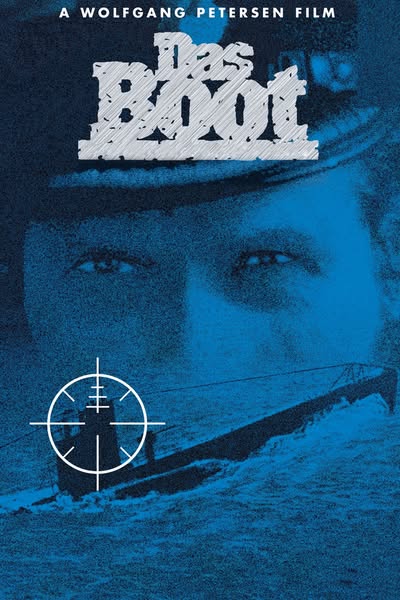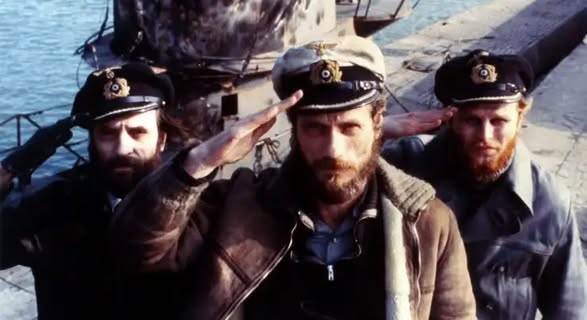Das Boot (1981)

“Das Boot,” directed by Wolfgang Petersen and released in 1981, is a critically acclaimed German war film that offers a gripping portrayal of life aboard a World War II U-boat. Based on Lothar-Günther Buchheim’s novel, the film immerses viewers in the harrowing experiences of the crew as they navigate the treacherous waters of the Atlantic.
The story follows the U-96, a German submarine, and its crew as they embark on a series of missions. The film focuses on the psychological and physical toll of submarine warfare, capturing the claustrophobic environment of the U-boat and the constant threat of enemy detection. As the crew faces challenges such as mechanical failures, dwindling supplies, and the ever-present danger of Allied forces, the film explores themes of camaraderie, fear, and the brutal realities of war.

Petersen’s direction is masterful, utilizing tight cinematography to convey the cramped quarters of the submarine and the intense pressure the crew experiences. The film’s pacing, particularly in the latter half, builds a sense of suspense and urgency that keeps viewers on edge. The use of sound design and atmospheric music further enhances the immersion into the harrowing underwater world.

“Das Boot” is notable for its realistic depiction of naval warfare, avoiding glorification of the conflict. Instead, it humanizes the crew, portraying them as individuals caught in the machinery of war, struggling with their fears and moral dilemmas. The performances, particularly by Jürgen Prochnow as the U-boat captain, are powerful and nuanced, adding depth to the characters’ experiences.
The film received widespread acclaim and was nominated for several Academy Awards, including Best Director and Best Cinematography. Its impact on the war film genre is profound, influencing subsequent portrayals of submarine warfare in cinema.

In conclusion, “Das Boot” is a landmark film that masterfully captures the tension and psychological strain of life aboard a U-boat during World War II. With its compelling storytelling, strong performances, and immersive atmosphere, it remains one of the most respected war films in cinematic history.











